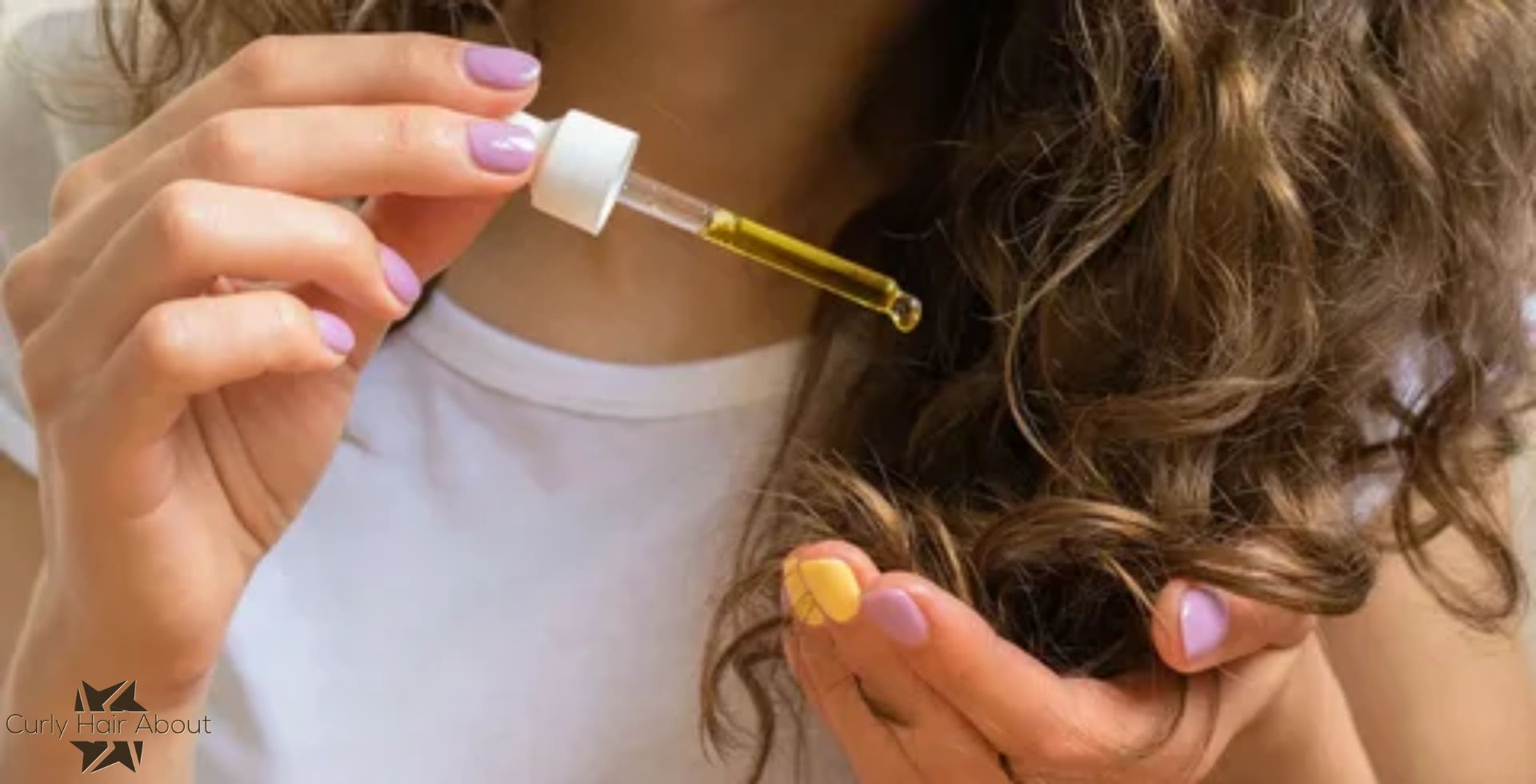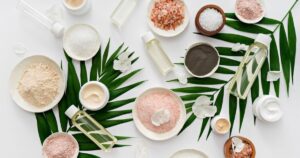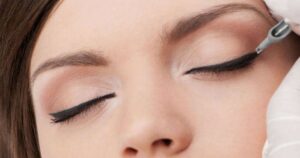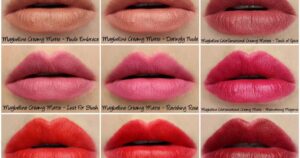To oil curly hair, apply a small amount of natural oil such as argon or coconut oil to damp hair. Gently massage the oil into the curls to moisturize and define them, leaving your hair nourished and frizz-free. Repeat as needed for a health, glossy finish.
Discover the secret to luscious curls! Learn the art of nourishing your curly hair with a simple yet effective guide on how to oil curly hair? your locks. Want to say goodbye to frizz and hello to vibrant well-defined curls that shine with health and vitality.
Nourish your curly locks by applying a small amount of natural oil like argon or coconut oil to damp hair. Gently massage the oil to moisturize and define your curls leaving them frizz-free and radiantly healthy. Follow this simple routine for beautifully nourished and well-defined curly hair.
(How To Oil Curly Hair?)
Oil you ready?
Oil, a vital resource extracted from the Earth powers our transportation industry and daily products. It serves as the foundation for fuels like gasoline and materials like plastics.
Despite its essential role the environmental impact of oil extraction and consumption has spurred efforts to explore cleaner energy options.
The global oil industry a complex network with economic and geopolitical implications is navigating challenges and opportunities in a shifting energy landscape.
Curly Hair and Oil
Curly hair tends to be naturally drier than straight hair because its structure makes it challenging for natural oils to travel down the hair shaft.
This can lead to frizz and a lack of shine. Using oils on curly hair can be beneficial in providing much-needed moisture. Oils like coconut oil argan oil or jojoba oil are popular choices. Applying a small amount of oil to the ends of curly hair can help seal in moisture,
reduce frizz and enhance the natural curl pattern. It’s important not to overdo it, as too much oil can weigh down the curls. Finding the right balance of oil can leave curly hair looking healthy hydrated and defined.
Curly Hair’s Inherent Dryness:
Explore the natural tendency of curly hair to be drier compared to straight hair due to its structural challenges, preventing natural oils from traveling down the hair shaft.
Combatting Frizz and Enhancing Shine:
Understand how the dryness of curly hair can result in frizz and a lack of shine, and discover the benefits of using oils, such as coconut oil, argan oil, or jojoba oil, to provide essential moisture and promote healthier curls.
Strategic Application for Moisture Seal:
Learn the importance of applying a small amount of oil specifically to the ends of curly hair as a method to seal in moisture, promoting better hydration and preventing common issues associated with dryness.
What is porosity?
Porosity refers to the measure of empty spaces, or pores, within a material. It is a property that describes the amount of open space or voids in a substance typically expressed as a percentage.
Porosity can be found in various materials such as rocks soils and even in manufactured products like ceramics. The presence of pores in a material affects its ability to absorb liquids or gases.
“Higher porosity, as seen in materials like curly hair, leads to increased absorption. This understanding is crucial in geology, construction, and materials science, shaping the properties and behavior of diverse materials. Just as lice like curly hair, porosity influences various aspects across different domains.”
How do you measure porosity?
Porosity is a measure of the open spaces or voids within a material often expressed as a percentage. To determine porosity various methods are employed depending on the type of material being examined. In soil science for instance porosity can be measured by calculating the ratio of void volume to total volume.
This is often done using techniques such as soil cores or laboratory tests. In materials science porosity in metals or ceramics can be assessed through methods like mercury intrusion porosimeter where mercury is forced into the material’s pores and the intrusion volume is measured.
In simpler terms measuring porosity involves evaluating the number of empty spaces within a substance providing valuable information about its structure and properties.
What about hair density?
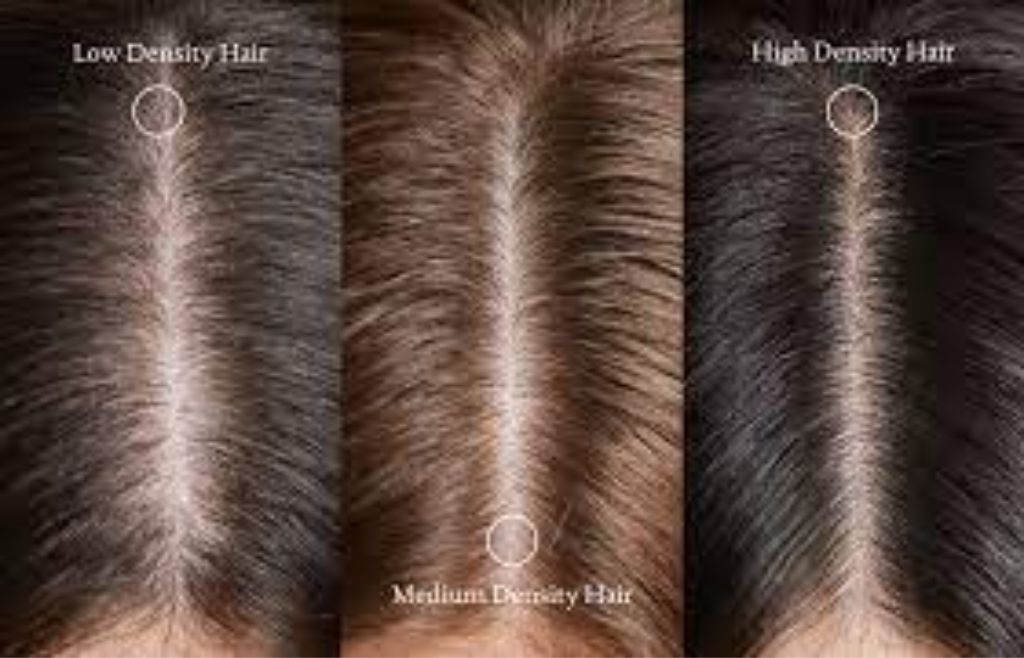
Hair density refers to the number of hair follicles present in a specific area of the scalp. It is a key factor in determining the thickness and fullness of one’s hair.
People with high hair density have more follicles per square inch resulting in a fuller appearance while those with lower hair density may have a sparser look. Hair density can vary among individuals and is influenced by genetics age and other factors.
Understanding your hair density can help you choose hairstyles and hair care routines that suit your unique hair type. Whether you have thick or thin hair embracing and caring for your natural hair density can contribute to overall hair health and confidence.
How do you use hair oil on curly hair?
To enhance and maintain the health of curly hair using hair oil can be beneficial. Start by choosing a suitable oil for your hair type such as coconut oil argon oil or jojoba oil. Begin with dry or damp hair sectioning it for easier application.
Take a small amount of oil in your palms and rub them together to warm the oil. Gently work the oil through your hair focusing on the mid-lengths and ends. Use your fingers to distribute the oil evenly ensuring every strand is coated.
You can also use a wide-tooth comb to detangle and spread the oil. Leave the oil in for at least 30 minutes or overnight for a deep treatment. Finally wash your hair with a mild shampoo to remove excess oil leaving your curly locks nourished moisturized and looking vibrant.
4 ways to use hair oils in your routine
Certainly! Here’s a simple table outlining “4 Ways to Use Hair Oils in Your Routine”
| Method | Description |
| Pre-Shampoo Treatment | Apply the hair oil to dry or damp hair before shampooing. Massage it into the scalp and distribute through the lengths. |
| Overnight Deep Treatment | For an intensive treatment, apply a generous amount of oil to your hair before bedtime. Cover with a cap and wash the next day. |
| Leave-In Conditioner | Use a small amount of oil on damp hair as a leave-in conditioner. Focus on the ends to hydrate and define curls. |
| Scalp Massage | Massage oil into the scalp to promote circulation and nourish the roots. This can be done before washing or as a quick boost. |
How to identify the best oil for your hair type
Choosing the right oil for your hair can make a big difference in keeping it healthy and shiny. To identify the best oil for your hair type consider factors like texture and moisture needs. If you have dry or frizzy hair oils like argan or coconut can provide much-needed hydration.
For those with oily hair lighter oils such as jojoba or grapeseed are ideal to avoid weighing down the hair. Fine or thin hair benefits from lighter oils as well while thicker hair can handle heavier options like olive or castor oil.
It’s important to experiment and observe how your hair responds to different oils as everyone’s hair is unique. Applying a small amount and gradually increasing if needed can help you find the perfect oil match for your hair type.
Jojoba Oil
Jojoba Oil is a liquid wax derived from the seeds of the jojoba plant. Rich in vitamins and minerals, it closely resembles the natural oils produced by the scalp, making it an excellent moisturizer for hair and skin.
Coconut Oil:
Coconut oil is a popular natural hair treatment known for its moisturizing properties. Rich in fatty acids, it nourishes and strengthens hair, promoting shine and reducing protein loss.
Sunflower Oil:
Sunflower oil is a lightweight and non-greasy oil known for its rich content of vitamin E, promoting hair health and hydration. It helps nourish the scalp, reduce frizz, and adds a natural shine to the hair.
Grapeseed Oil:
Grapeseed Oil is extracted from grape seeds and is rich in antioxidants, vitamin E, and fatty acids, making it a lightweight and nourishing option for hair care. Known for its moisturizing properties, it helps promote a healthy scalp and can contribute to smoother, shinier hair.
Hemp Oil:
Hemp oil, derived from the seeds of the hemp plant is rich in omega-3 and omega-6 fatty acids promoting hydration and nourishment for the hair and scalp. It’s known for its potential to strengthen hair reduce breakage and improve overall hair health.
Rosemary Oil:
Rosemary oil is known for its stimulating properties that promote hair growth and thickness. It also has a refreshing scent and is often used to improve scalp health.
Peppermint Oil:
Peppermint oil is known for its refreshing aroma and cooling sensation. When applied to the scalp, it can promote a soothing effect, stimulate hair follicles, and contribute to a healthier scalp environment.
What is the best oil for curly natural hair?
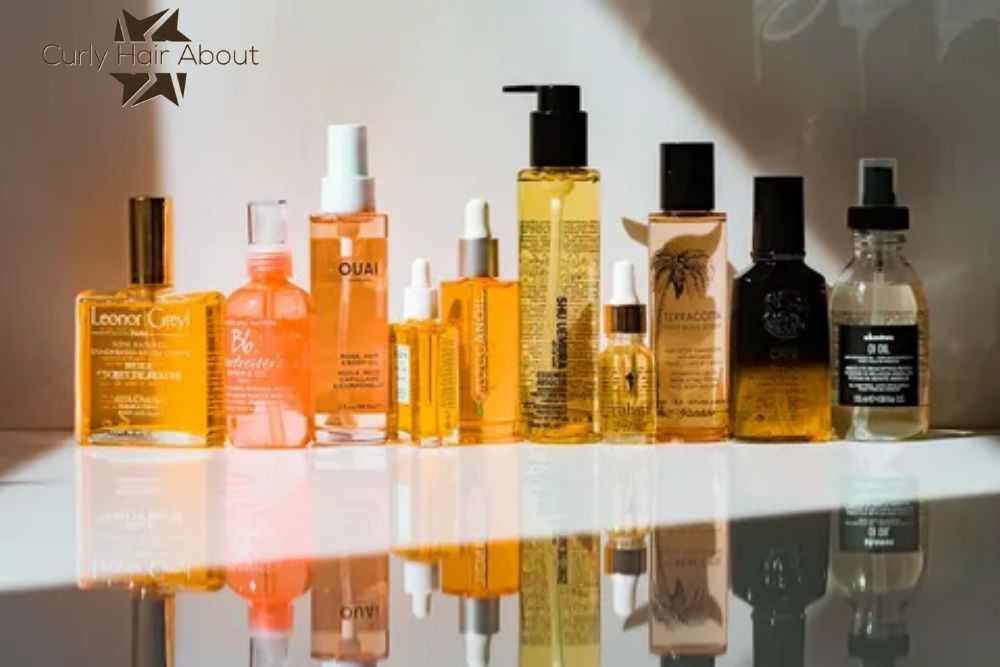
Choosing the best oil for curly natural hair is essential for maintaining healthy and well-nourished locks. Many individuals with curly hair find success with oils that provide moisture and enhance curls. Argon oil is a popular choice as it is rich in vitamins and fatty acids promoting hydration and shine.
Coconut oil is another favorite known for its ability to penetrate the hair shaft and prevent protein loss. Jojoba oil is praised for its similarity to the natural oils produced by the scalp helping to balance moisture levels.
Ultimately, the best oil for curly natural hair may vary from person to person so it’s worth experimenting to discover the one that works best for your unique hair needs.
Understanding Your Hair Type:
Tailoring your choice of oil to your specific curly hair type is crucial. Different curl patterns may have varying needs, and selecting an oil that aligns with your hair’s characteristics ensures effective nourishment.
Moisture and Curl Enhancement:
Look for oils that not only moisturize but also enhance the natural curls. Prioritize oils known for their ability to promote hydration and define curls, helping you achieve a well-nourished and beautifully defined curly hairstyle.
Popular Choices and Their Benefits:
Explore widely recognized oils such as Argon oil, which stands out for its richness in vitamins and fatty acids. Understanding the specific benefits of popular oils can guide you in making informed choices for healthier, shinier, and more vibrant natural curls.
How long can you leave oil in curly hair?
It’s best not to leave oil in curly hair for too long. While applying oil to curly hair can help moisturize and define curls leaving it in for an extended period may lead to a greasy or weighed-down appearance.
Typically, it’s recommended to leave oil in curly hair for about 30 minutes to an hour before washing it out. This allows the hair to absorb the nourishing benefits of the oil without causing buildup.
However, individual preferences and hair types may vary so it’s essential to find a balance that works for your specific curls. Regular oil treatments can contribute to healthier and more vibrant curly hair.
Does curly hair need water or oil?
Curly hair benefits from both water and oil to maintain its health and appearance. Water helps to hydrate the hair and keep it moisturized, preventing dryness and frizz. It’s essential to regularly wash curly hair with water to remove any dirt or product buildup.
Additionally, using a conditioner can provide extra hydration. On the other hand, oils such as argan oil or coconut oil can be beneficial for curly hair. These oils help to seal in moisture add shine and reduce frizz.
Applying a small amount of oil to the ends of the curls can keep them nourished and well-conditioned. Balancing water and oil in the hair care routine is key to keeping curly hair looking healthy and beautiful.
Is oil actually good for curly hair?
Many people with curly hair wonder if using oil is beneficial for their hair. The answer depends on the type of oil and individual hair needs. Natural oils like coconut oil argan oil and olive oil can be good for curly hair as they provide moisture reduce frizz and add shine.
These oils can be applied in small amounts to the hair focusing on the ends. However it’s essential to avoid using too much oil as it can make the hair greasy.
Additionally, individuals may need to experiment to find the oil that works best for their specific hair type and needs. Overall using oil can be a helpful part of a curly hair care routine when used appropriately.
What are the disadvantages of oiling your hair?
Oiling your hair can have some drawbacks. One disadvantage is that excessive oiling may lead to a greasy and weighed-down appearance. Applying too much oil or not washing it off properly can attract dirt and dust making the hair look unkempt.
Additionally, some people may experience skin issues such as acne or irritation on the scalp especially if they have sensitive skin.
Over-reliance on oiling may also cause a dependency on external moisturizers hindering the natural balance of the scalp’s oil production. It’s important to find a balance and not overdo the oiling to maintain healthy and clean hair.
Can I oil my curly hair every day?
It’s generally not necessary to oil your curly hair every day. While applying oil can help moisturize and nourish your curls doing it daily may lead to an excess buildup of oil making your hair feel greasy.
Curly hair tends to be more prone to dryness so it’s essential to find a balance. Instead of daily oiling consider applying oil to your curly hair a few times a week or as needed.
Focus on the ends of your hair to prevent split ends and promote overall hair health. Additionally, choose a lightweight and non-greasy oil that suits your hair type for the best results in maintaining those beautiful curls!
FAQ’s
Should I apply oil to wet or dry curly hair?
It’s often more effective to apply oil to damp, wet hair for better absorption and moisture retention in curly hair.
How often should I oil my curly hair?
It’s recommended to oil your curly hair about 1-2 times a week for optimal moisture without causing excess buildup.
Should I apply oil to the scalp or just the ends of my hair?
It’s advisable to focus on applying oil to the ends of your hair to prevent split ends, but a small amount can be applied to the scalp if it tends to be dry.
Can I use any oil from my kitchen for my curly hair?
While some kitchen oils like olive oil can be beneficial, it’s essential to choose oils that suit your specific hair type for optimal results.
Conclusion
maintaining curly hair through oiling is a simple yet effective practice that contributes to overall hair health. By choosing the right oil and applying it strategically individuals can enhance the moisture and vitality of their curls. It’s crucial to strike a balance avoiding excessive oiling to prevent buildup while ensuring regular nourishment.
Additionally, experimenting with different oils and finding a routine that suits your hair type will help you achieve the best results. Ultimately incorporating oil into your curly hair care routine can lead to softer more manageable curls providing a natural and vibrant look that boosts confidence and embraces the beauty of curly hair. Remember consistency and understanding your hair’s needs are key to unlocking the full potential of your curly locks through the art of oiling.

Matthew, an expert with 10 years of experience, is the author behind curlyhairabout.com, sharing valuable insights on curly hair care.
